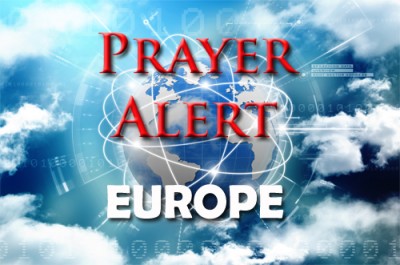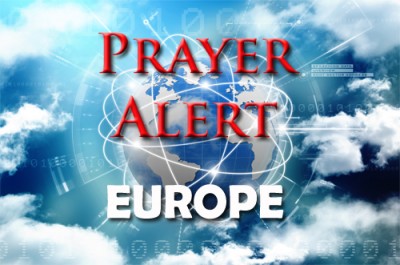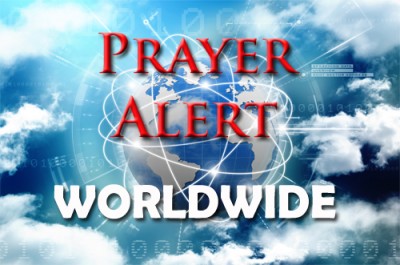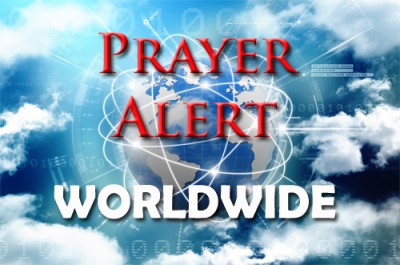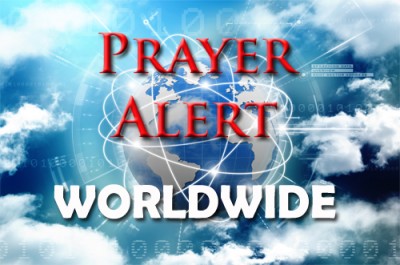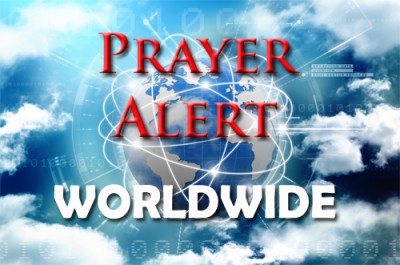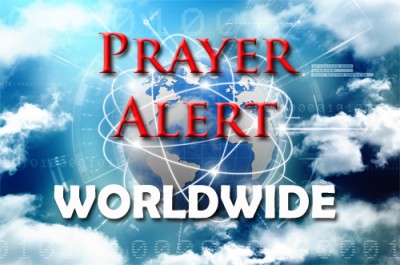37 experts from farming, climate change and nutrition groups across the world came together as part of the EAT-Lancet commission. They took two years to come up with their findings, now published in the Lancet. The world population is expected to reach 10 billion by 2050 and will keep on climbing. Better diet will prevent about 11 million dying from heart attacks, strokes and some cancers. The use of land for farming and forestry accounts for a quarter of global greenhouse gas emissions - substantially more than from all trains, planes and automobiles on the planet. The commission will take its findings to governments around the world and bodies such as the WHO, to see if it can bring changes to what we eat. The recommended ‘planetary health diet’ does not completely banish meat and dairy, but it requires an enormous shift in what we put on our plates. We will have to turn to foods that we now barely eat.
Greece: snow hardship for refugees
17 Jan 2019Winter makes life in an improvised refugee camp even harder than it already is for asylum seekers - especially for the most vulnerable. Pregnant women, new-born babies, and the elderly, sleeping in tents without heating, are among hundreds exposed to worsening weather. Hours after a 24-year-old man from Cameroon was found dead at Moria refugee camp in Lesbos, an Oxfam report stated that hundreds of vulnerable people, including survivors of torture, ‘are being abandoned’ in substandard conditions. Oxfam said its concern is that there could be more deaths with the recent freezing weather and the poor preparations for winter in the camps. Every year conditions in and around the camps deteriorate further with the onset of winter because they are not equipped for cold temperatures, heavy rain or snowfall. Pray for those living in muddy bogs, burning anything they can find to keep warm to receive suitable accommodation, and medical support. See also
Netherlands: Nashville Statement
17 Jan 2019Evangelical Christians are living in a period of historic transition as Western culture becomes post-Christian and attempts a revision of faith values. By and large the spirit of our age no longer discerns or delights in the beauty of God’s design for human life. Many deny that God created human beings for His glory, and in our personal and physical design as male and female. After a group of 250 Dutch pastors signed the Nashville Statement (which promotes a biblical view of sexuality), they were met by strong opposition - even the Hague flew a rainbow flag in protest. The country’s public prosecution service is examining the statement to see if there is any basis for a criminal investigation against the pastors. Over recent days, the public outcry against them for their Christian convictions has been ferocious. Politicians and celebrities have publicly denounced them. See also
Catholic charity CAFOD is asking communities not to become divided after al-Shabaab attacked the DusitD2 hotel complex in Nairobi on 15 January. CAFOD's Catherine Ogolla described the attacks as ‘horrifying and worrying’. She explained, ‘What terrorists of any type want to do is to divide communities and sow violence. Therefore, all people must stand together for peace and unity in this time of trouble, sending the message out that any form of violent terror will not succeed; will not divide the Kenyan nation’. President Kenyatta said 700+ people were evacuated during the security operation, all terrorists were eliminated, and the country is safe. He urged Kenyans to ‘go back to work without fear’. Sixteen Kenyans, a Briton, and an American (a survivor of 9/11) are among the 21 dead, and 28 are in hospital. See also
Iran: scores of Christians arrested
17 Jan 2019‘Please pray for our family in Iran amid a wave of arrests.’ The Iranian church is on high alert after 150+ Christians were detained in just a few weeks at the end of 2018. Most of those detained have now been released after bail was paid. Amir Taleipour and his wife Mahnaz Harati from northeast Iran were arrested in front of their seven-year-old daughter on 6 December. Four days earlier, two sisters, Shima and Shokoofeh Zanganeh, were arrested in their homes in Ahvaz. They were reportedly beaten by security officials, who interrogated them then transferred them to Sepidar Prison. When their family tried to pay the sisters’ bail, they were turned away. Nine more were arrested in Alborz province. Thank God that the church in Iran is reportedly growing. Some analysts interpret the recent crackdown as an attempt to intimidate people interested in Christianity. Pray for Christians to stand firm in their faith.
Media disinformation
17 Jan 2019‘Fake news’ threatens honest debate and democracy. Donald Trump’s favourite term was named 2017's word of the year by Collins Dictionary (described as false, often sensational, information disseminated under the guise of news reporting). Facebook has employed a UK fact-checking service to help it deal with the spread of fake news. Full Fact, a charity founded in 2010, will review stories, images and videos for accuracy, focusing on misinformation that could damage people's health or safety, or undermine democratic processes. If something is fake, it will appear lower in the news feed but will not be deleted. Pray for proven misinformation to be removed completely. Brexit and the 2017 UK general election were both found to be tarnished by fake news. On 11 January Nigeria held a ‘Beyond Fake News’ summit in Abuja to examine ways of combatting fake news ahead of February’s election. See
Turkey: Muslim refugees and Christian aid
17 Jan 2019A Muslim man recently told a Turkish ministry leader, ‘In a few weeks I’m going to go down to the refugee camps. I have a friend who bought a young Syrian girl to be his second wife; I am going to go and pick one for myself.’ The leader replied, ‘I’m very sad that you would want to buy a little girl as a slave and take advantage of these poor people who are just trying to survive.’ It’s too dangerous for most Syrian refugees to return home, even if they have homes to return to after seven years of war. Mothers in refugee camps are grief-stricken when criminals steal and sell their daughters. The refugees are aware that it is Muslims who are buying their daughters, and that Christians are the ones bringing them compassionate aid of food and blankets. Recently a worker was asked by a Muslim refugee, ‘Please pray for us!’
Uganda: mother and pastor fear for their lives
17 Jan 2019Uganda’s constitution provides for religious freedom, including conversion from one faith to another. Muslims make up 12% of Uganda’s population. Recently, Muslims in eastern Uganda sent a Christian mother to hospital with injuries for praying in Jesus’s name, and tore down a church building nearby. Both the woman and the church’s pastor fear that their lives are in danger. Deborah Gimbo was attacked while praying by herself in her home. She also prays three evenings a week in her home with two Christian women. The assailants said, ‘Today we warn you that you should avoid noisy prayers and the use of Issa [Jesus] in your prayers.’ A local imam told the assailants, ‘People who pray in Jesus’ name should be fought and pressured until they only worship Allah, or are killed’. Pastor Simon Mustafa Waseke, a former Muslim, had his church destroyed by villagers. The assailants threatened to kill him if he stays in the area.

